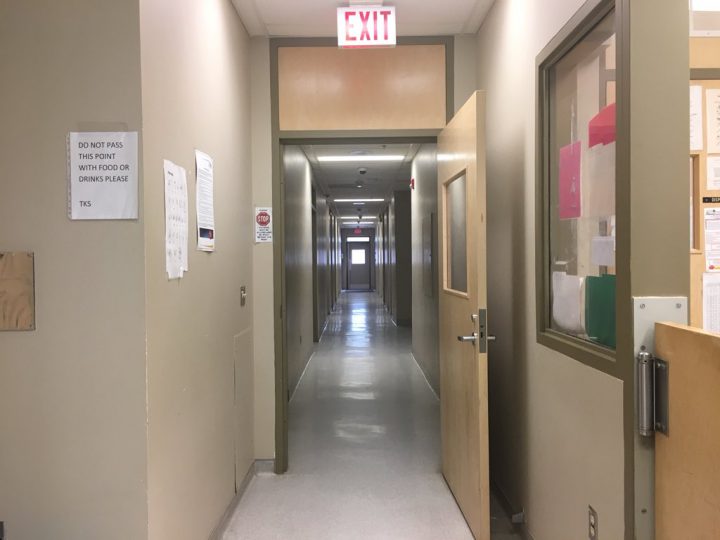It’s where individuals charged or convicted of a serious crime are sent when they are suspected to have mental health issues.

A deeply stigmatized offender population stays at the Forensic Unit at the Saskatchewan Hospital near North Battleford. Staff are now shedding light on the work they’ve been doing on the unit for more than two decades.
“It’s a 24-bed unit structured and run like a mental health facility with some elements of enhanced security,” said Dr. Lindsay Robertson, chief psychologist and director of forensic services.
“It serves the entire of Province of Saskatchewan for people who have come into conflict with the law and maybe have some suspected mental health difficulties and they would be referred to us for assessment or treatment.”
Before an accused arrives for a psychiatric assessment, staff will talk to the Crown, defence counsel, corrections and review police reports. Robertson said it’s in order to get a sense of the person’s presentation and what needs will need to be managed so they can stay safely on the unit.
“Psychology doesn’t get involved in every assessment. We tend to get involved if it’s maybe a more complicated case where there’s maybe diagnostic clarification that’s required or concerns about malingering.”
In 1995, the unit officially opened its doors. Prior to that, the provincial government paid the federal government to provide services at the Regional Psychiatric Centre (RPC) in Saskatoon.

Get breaking National news
“We have a very, very strong interdisciplinary clinical teams at Saskatchewan Hospital,” Saskatchewan Hospital director Linda Shynkaruk said.
“They are very much experts in not only assessment but treating and rehabilitating individuals.”
So how does the Forensic Unit differ from the RPC? Staff said it comes down to security levels. RPC is a maximum security institution whereas the offenders at Saskatchewan Hospital only require medium security.
“The last fiscal year we had 138 admissions to Forensic Unit, approximately 95 per cent of our admissions were individuals remanded for a court-ordered assessment,” Robertson explained.
“Three per cent were treatment transfers from provincial correctional facilities for some kind of stabilization and two per cent were individuals who were found unfit to stand trial or not criminally responsible.”
The average stay for an assessment is 14 days, a treatment transfer is 44.
Someone unfit to stand trial or found not criminally responsible could stay up to three and a half years, but at some point when their risk is mitigated, they are stabilized and the patient can be integrated into the hospital setting.
These are rare. Only one per cent of people who face criminal charges are found to be not criminally responsible.
Staff also noted that for some patients housed at the Forensic Unit, it’s the first time they are finally getting the treatment they need after committing a crime while sick.
“The overall goal for any of our patients where they’re offenders or psych-rehab part of our hospital is to address their mental health issues and help people get well,” Shynkaruk said.
The new hospital site set to open in the fall will separate patients at the Forensic Unit based on their legal status. There will be 30 beds for those categorized as not criminally responsible, 12 beds for those who need assessing and a 96-bed unit for any treatment transfers.








Comments
Comments closed.
Due to the sensitive and/or legal subject matter of some of the content on globalnews.ca, we reserve the ability to disable comments from time to time.
Please see our Commenting Policy for more.